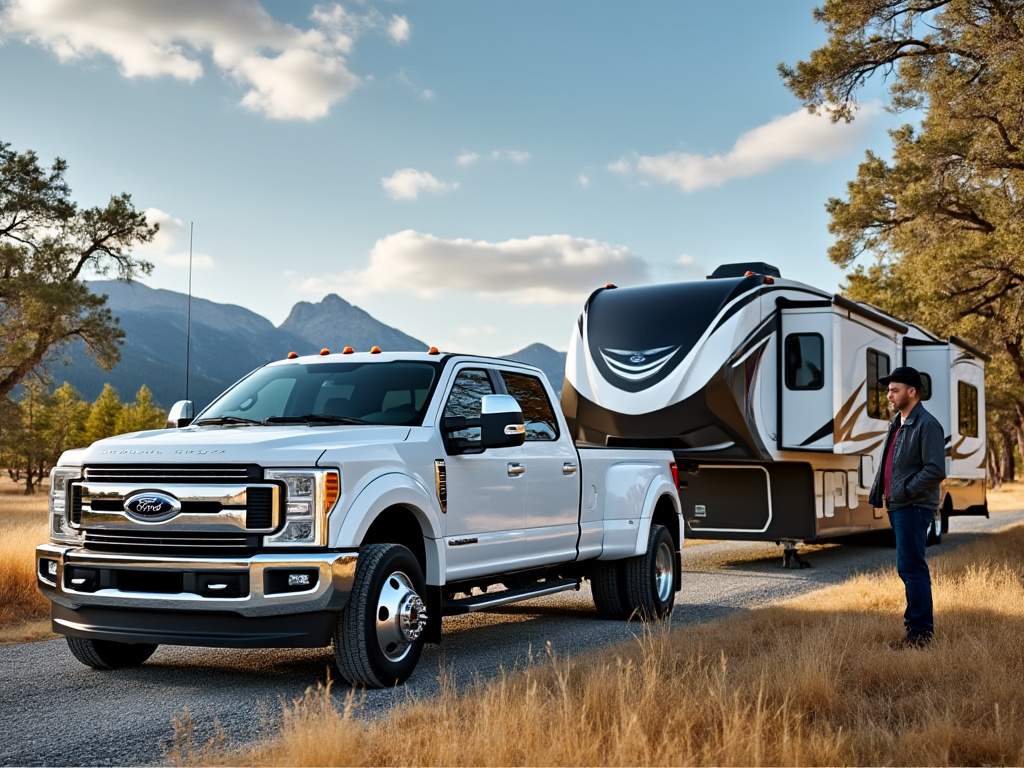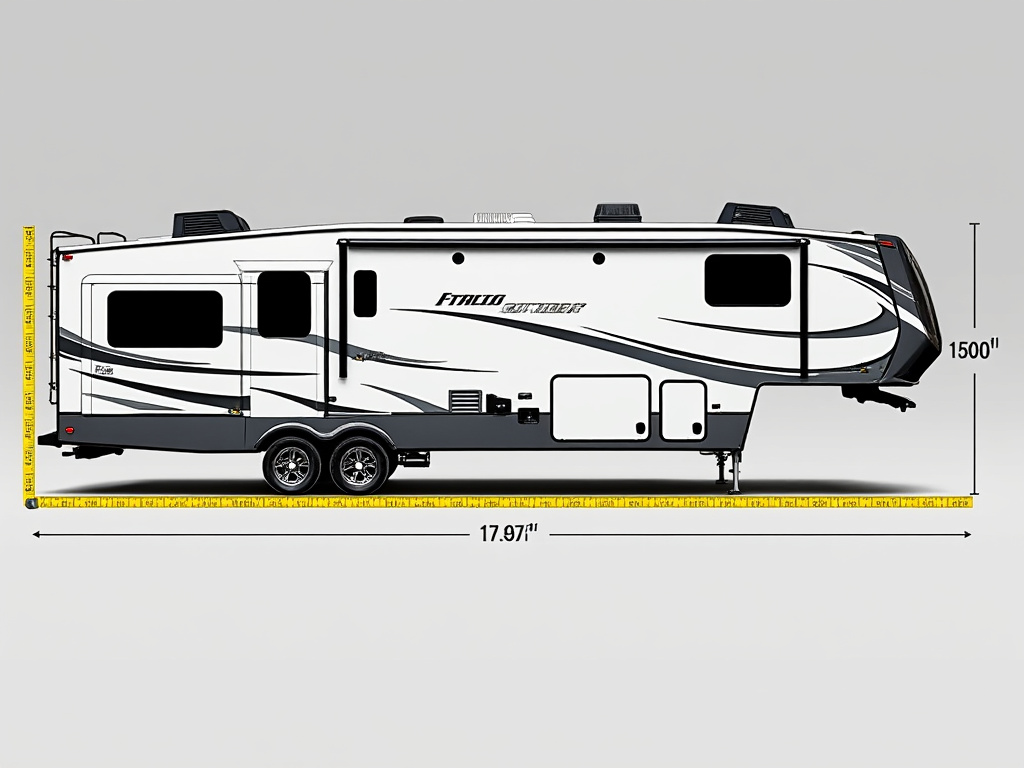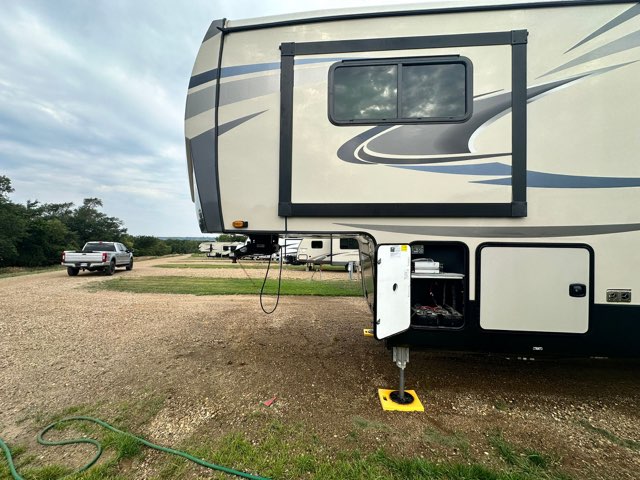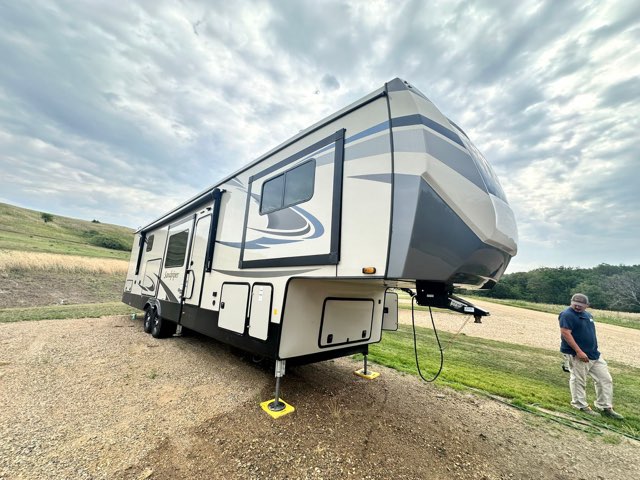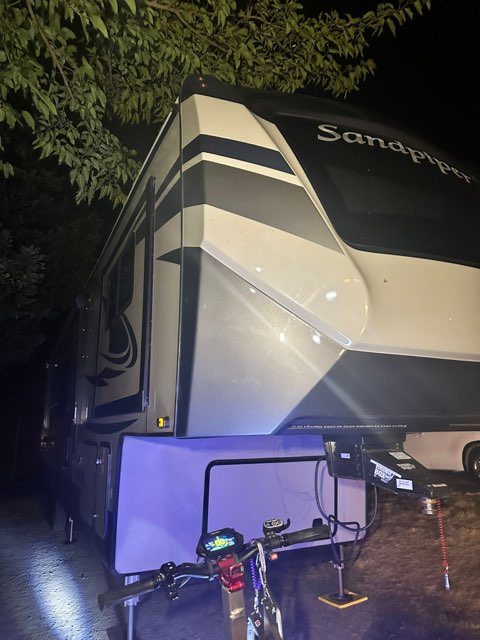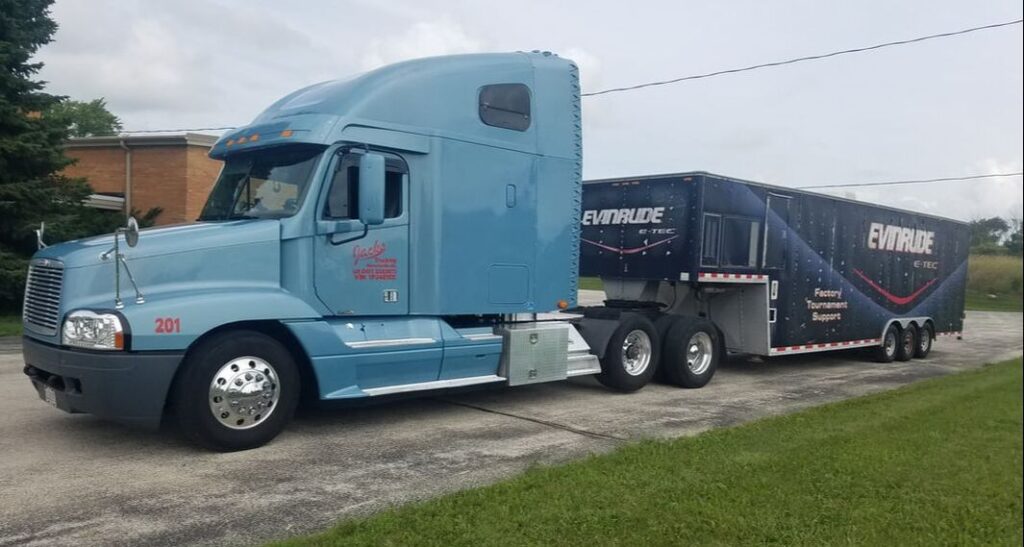Fifth Wheel Transport :
Fifth Wheel Transport is a big part of this industry. Either being much cheaper to tow a roadworthy unit vs hauling on a trailer. Or units that are too large and would be cost prohibitive to load on a deck. Fifth Wheel Trailers range in size but are gooseneck kingpin or gooseneck ball hitches. (It is important to know the difference)
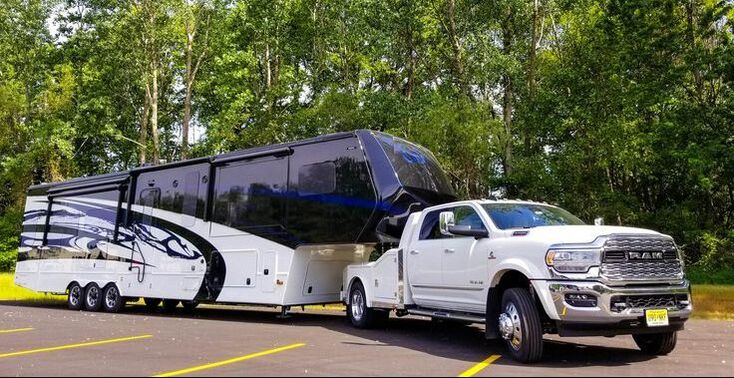
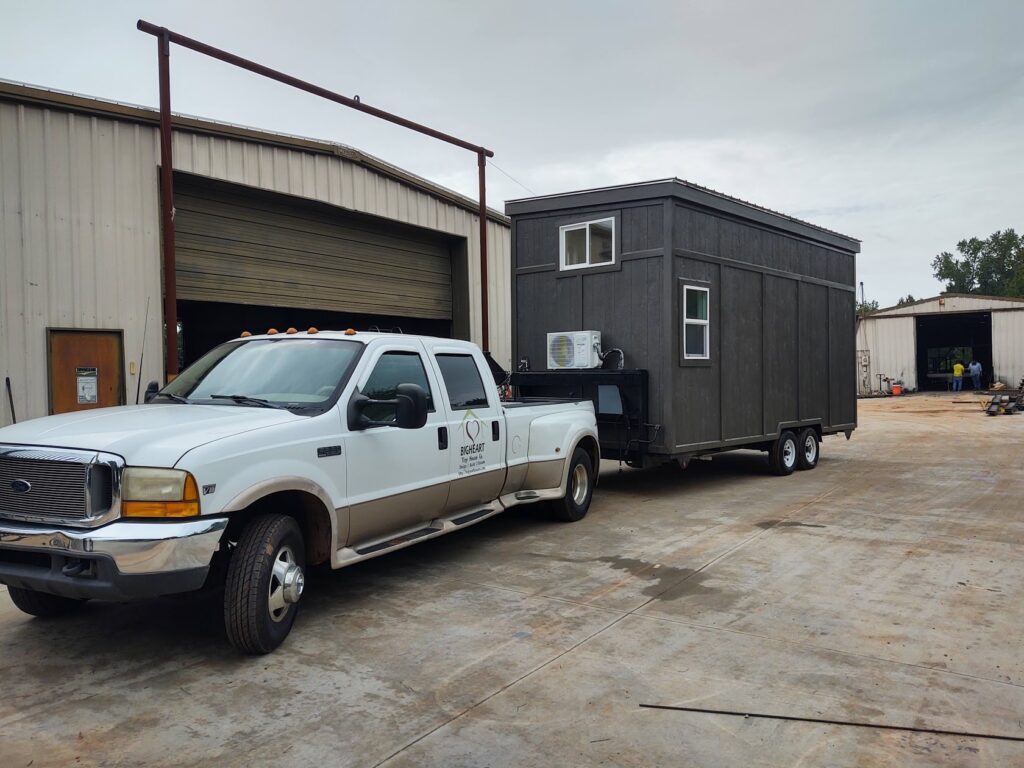
Guide to the World of Fifth Wheel Transport :
Exploring the World of Fifth Wheel Transport
In the vast landscape of transportation solutions, the fifth wheel trailer stands out as a versatile and robust option, particularly for those who value both mobility and comfort. Here’s a comprehensive look into what fifth wheel transport entails, its benefits. And why it might just be the perfect travel companion for your next adventure.
What is a Fifth Wheel Trailer?
A fifth wheel trailer is a type of towable recreational vehicle (RV) that connects to a truck bed via a hitch mechanism known as a “fifth wheel.” This coupling system is located over the rear axle of the towing vehicle, providing a stable and secure connection. Unlike other types of RVs, the fifth wheel design allows for a larger living area, often with more luxurious amenities, due to its unique shape and connection method.
Advantages of Fifth Wheel Transport
1. Enhanced Stability: The fifth wheel hitch provides superior stability and control over traditional bumper-pull trailers. This setup reduces sway, making towing safer and more comfortable, especially at higher speeds or in windy conditions.
2. Spacious Living: Fifth wheel trailers are known for their expansive interiors. The living area often extends over the truck’s cab, creating additional space for living, sleeping, or storage. This makes them ideal for families or long-term travelers who need room to spread out.
3. Comfort and Amenities: Many fifth wheel models come equipped with high-end features like full kitchens, multiple bedrooms, bathrooms with showers, and even entertainment systems. This level of comfort can turn any campsite into a home away from home.
4. Customization: Owners can personalize their fifth wheel trailers to a great extent, from interior decor to adding solar panels or advanced tech for off-grid living.
Towing Capacity:
Modern trucks, especially those designed for towing, can handle the weight of fifth wheel trailers with ease, provided the truck’s towing capacity matches or exceeds the trailer’s weight.
Considerations for Fifth Wheel Owners
- Truck Compatibility: Not all trucks can tow a fifth wheel. It requires a specific type of truck with a fifth wheel hitch installation, which might mean investing in a new vehicle or modifying an existing one.
- Learning Curve: Towing a fifth wheel requires some skill. New owners might need practice to get comfortable with backing up, parking, and maneuvering the rig.
- Cost: Both the initial purchase and maintenance of a fifth wheel can be higher compared to other RV types. However, the investment often pays off in comfort and functionality.
- Storage and Parking: When not in use, storing a fifth wheel can be a challenge. Many owners opt for RV storage facilities, which adds to the overall cost.
The Lifestyle of Fifth Wheel Travel
Fifth wheel transport isn’t just about moving from one place to another; it’s a lifestyle choice. It appeals to adventurers, retirees, digital nomads, and anyone who loves the idea of home on wheels. Whether it’s exploring national parks, attending festivals, or simply finding a quiet spot by the lake, the fifth wheel offers a blend of mobility and luxury that few other travel options can match.
Fifth wheel transport represents a pinnacle of RV travel, combining the freedom of the open road with the comforts of home. For those considering this mode of travel, it’s not just about the vehicle; it’s about embracing a lifestyle that values exploration, flexibility, and the joy of living in different landscapes. If you’re ready to take your travel experiences to the next level, a fifth wheel might just be the key to unlocking a world of new adventures.
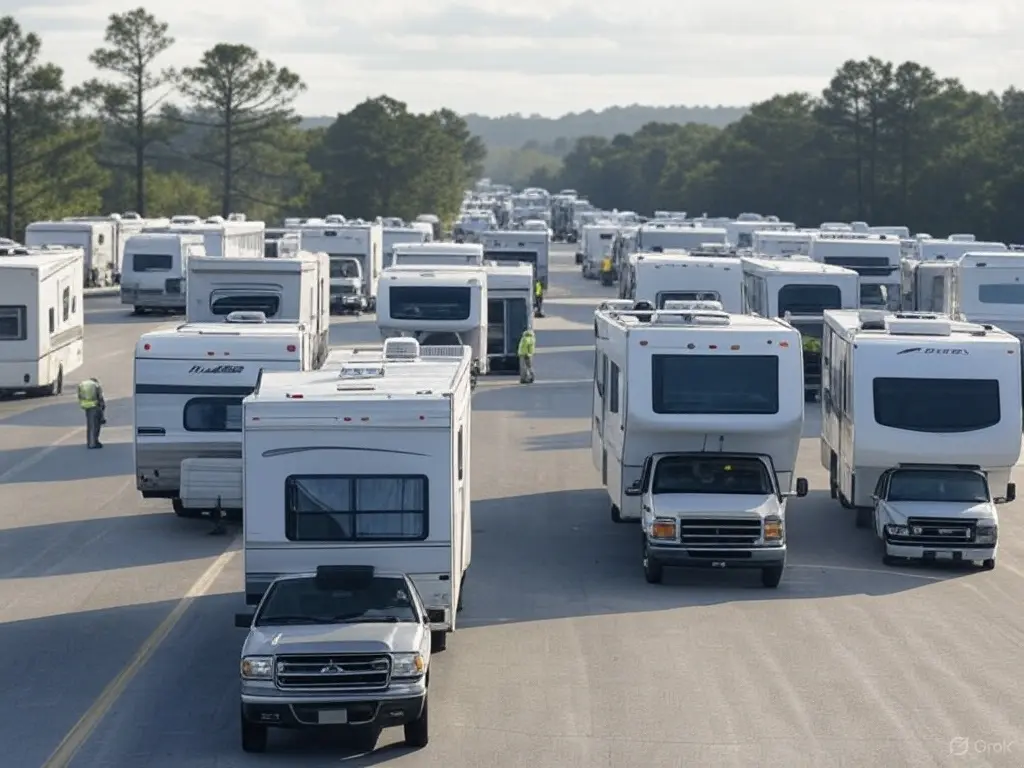
Continue to Travel Trailer Transport
